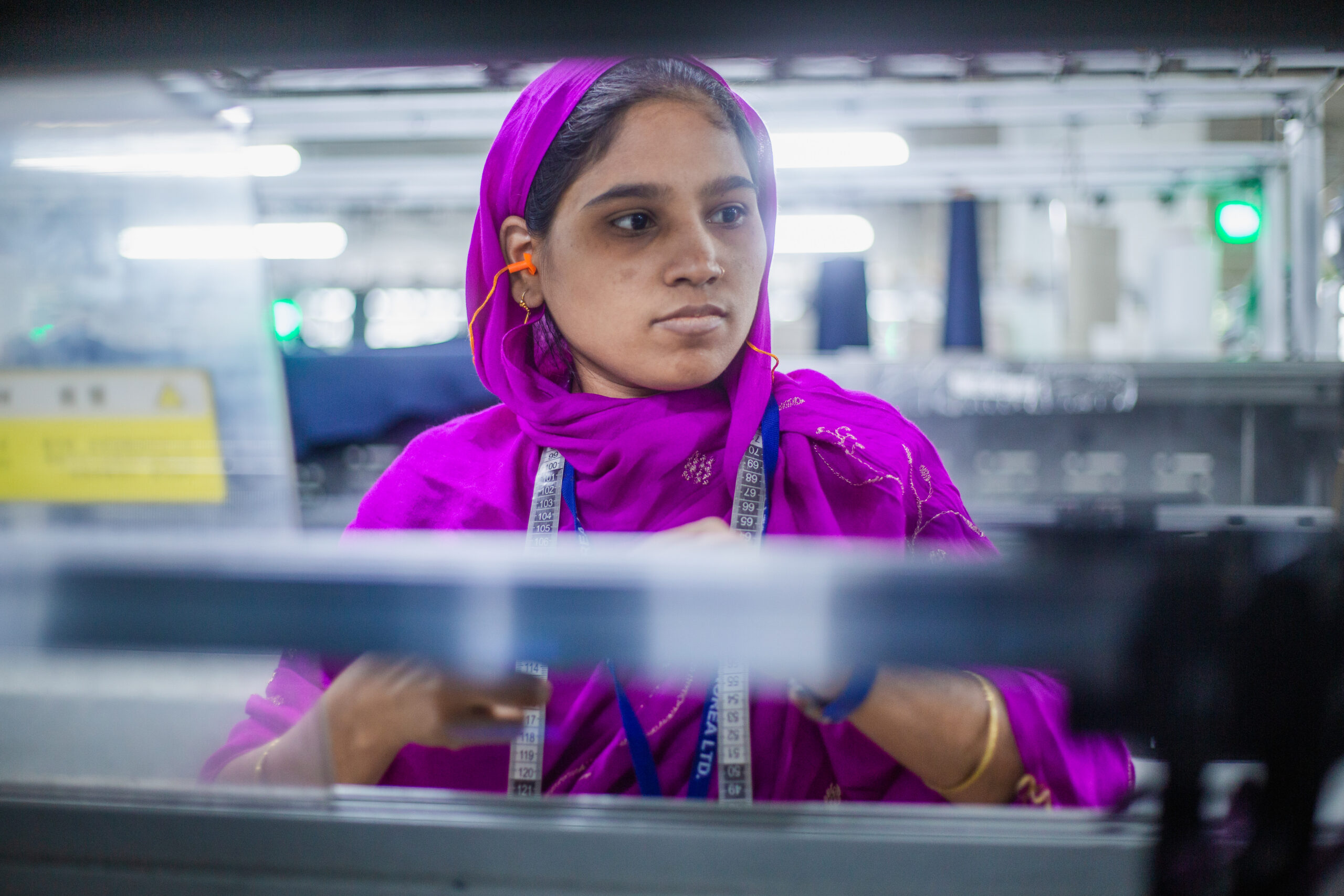From challenges to change: a roadmap to a just transition in Bangladesh
Imagine a future where Bangladesh’s textile industry not only thrives but also leads the way in sustainability and equity. A new report “Just Climate Transitions in Bangladesh”, authored by mission-driven consulting firm FSG and supported and co-funded by H&M Foundation and Laudes Foundation, reveals how this vision could become a reality, offering transformative pathways for the textile, apparel, and construction industries to achieve a just and sustainable transition.

The report explores transformative pathways for Bangladesh’s textile, apparel, and construction industries to achieve a just and sustainable transition. With insights from over 80 Bangladeshi and international stakeholders, the report suggests possible future scenarios and identifies strategies to address the pressing challenges of climate change while ensuring equitable opportunities for workers. Without climate change adaptation, about 22 percent of the land’s apparel export earnings and about 5 percent of jobs are at risk by 2030. Thus, this will heavily impact the approximately 4.3 million Ready-Made Garment (RMG) workers in the sector.
According to the report, the following pathways are underfunded and interconnected:
- Transition to low-carbon manufacturing, including design, processes, and energy.
- Increased uptake of sustainable and circular inputs
- Climate adaptation at site and manufacturing hub level
- Alternative sector development, skilling, and social protection
- Availability of adequate and affordable housing
- Expansion of innovative financing
- Ensuring worker inclusion, agency, and accountability in all transition plans
All stakeholders must ensure a just transition by incorporating and investing in climate adaptation and mitigation. The report urgently calls for increased complementary and concerted action among all stakeholder groups to secure a green and equitable future for Bangladesh’s industry and its workers. Only through collective efforts can a sustainable and equitable future be secured for Bangladesh’s textile and apparel industries.
“This report highlights the need to focus on both climate mitigation and adaptation, while driving systems change. It offers invaluable insights for anyone invested in Bangladesh, the climate, the RMG sector, or the just transition. As donors, we are committed to financing decarbonisation, circularity, climate adaptation, and improved labour policies.”
Charlotte Brunnström, Programme Director at H&M Foundation
Bangladesh contributes significantly to the global economy, especially to the fashion industry. As the world’s second-largest garment exporter, it generates over $38 billion annually and is a key hub for major fashion brands. The country stands at the forefront of opportunity, with its industrial sectors accounting for 34% of GDP and employing 12 million people. Nevertheless, Bangladesh is also one of the world’s most climate-vulnerable nations; it faces significant risks, including rising sea levels, extreme weather events, and heat stress.
Climate adaptation crucial for Bangladesh’s industry competitiveness and job creation
Decarbonisation and improved climate adaptation are critical for enhancing the long-term competitiveness of Bangladesh’s industry and creating decent work opportunities that allow Bangladesh to effectively leverage its demographic dividend.
By working together, businesses, workers and their representatives, policymakers, development organisations, skilling providers, finance, and philanthropy can initiate and innovate where new approaches are needed and accelerate and scale the many examples of good practice within Bangladesh that are showcased in this report. While much is in place, there are still significant gaps to be filled to advance just industry transitions. The report guides stakeholders on where one needs to focus to achieve a just, resilient and low-carbon future.
The insights will design next phase of Oporajita
Since 2022, H&M Foundation has a collective impact initiative in Bangladesh, Oporajita, aiming to futureproof women garment workers in Bangladesh. Through Oporajita multiple partners are joining hands for a just transition, to equip women garment workers for a future defined by automation and digitalisation. Over the years, Oporajita has provided an enabling environment for women garment workers to thrive at work and at home, as it has created conditions for the women to have greater agency to lead secure, dignified, and fulfilling lives, with enhanced economic opportunities, in a sustainable and resilient environment. In addition, the initiative has provided adequate skills training to the women and supported the competitiveness of Bangladesh’s textile industry as such. Charlotte Brunnström explains how H&M Foundation will the findings of this report to their future work:
“We will use this report to design our collective impact initiative Oporajita’s phase two, which will focus even more on catalysing a just transition in combination with decarbonisation of the sector. Collaboration is key, and we eagerly invite all stakeholders to join us in this journey towards a sustainable and just future.”
In brief
The report “Just Climate Transitions in Bangladesh” outlines pathways for the textile, apparel, and construction industries to achieve a just and sustainable transition. Is has been authored and published by FSG, with support from the H&M Foundation and Laudes Foundation.



